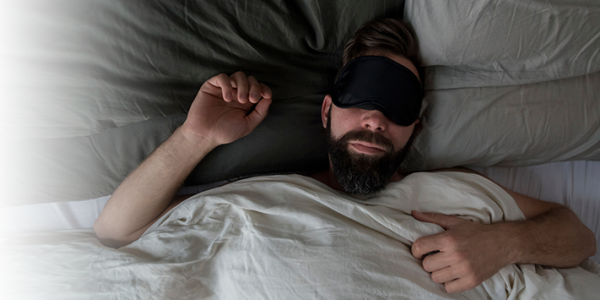


請點擊此轉換成中文
By now we all know that sleeping in a dark room is a best practice for good sleep hygiene. But unless you sleep in a cave – or in a room with black-out shades and zero electronics – chances are your eyeballs are exposed to more light than you think. From the tiny light on your cell phone charger to a dim nightlight in the bathroom down the hall, even this small amount of light can bypass your closed eyelids and hit your retinas. The results can be significant and even dangerous sleep disturbance. In fact, recent studies have shown that minimal light exposure at night suppresses melatonin production, and increases your risk for cardiovascular disease, diabetes, insulin resistance, obesity and even depression.
Fortunately, there's an easy, cheap solution that you can try starting tonight. All you need is a simple well-fitting eye mask. You don’t have to spend a lot of money, but you also shouldn't rely on the freebies you may have collected from the airlines over the years. Those are certainly better than nothing when you’re trying to get some shut eye on an overnight flight, but they aren’t generally substantial enough to do the job, and the loose fit can still let in too much light. Instead, look for a mask that:
Still not convinced that such a simple accessory could make a big difference. Consider this: A study conducted at Cardiff University showed that wearing an eye mask at night could improve certain brain activity – including learning, memory and alertness. Interestingly, those involved in the study didn’t demonstrate an improvement in the quality or quantity of their sleep, but their brains clearly benefitted from the darkened environment.
With so many benefits and virtually no risks or drawbacks, isn't it time to try an eye mask? Waking up more refreshed – and with a brain that’s primed for the day ahead – should be all the motivation you need!
This article appeared in the March 2024 edition of the HealthPerks newsletter.

Identify your risk factors and what to do if you are at risk.